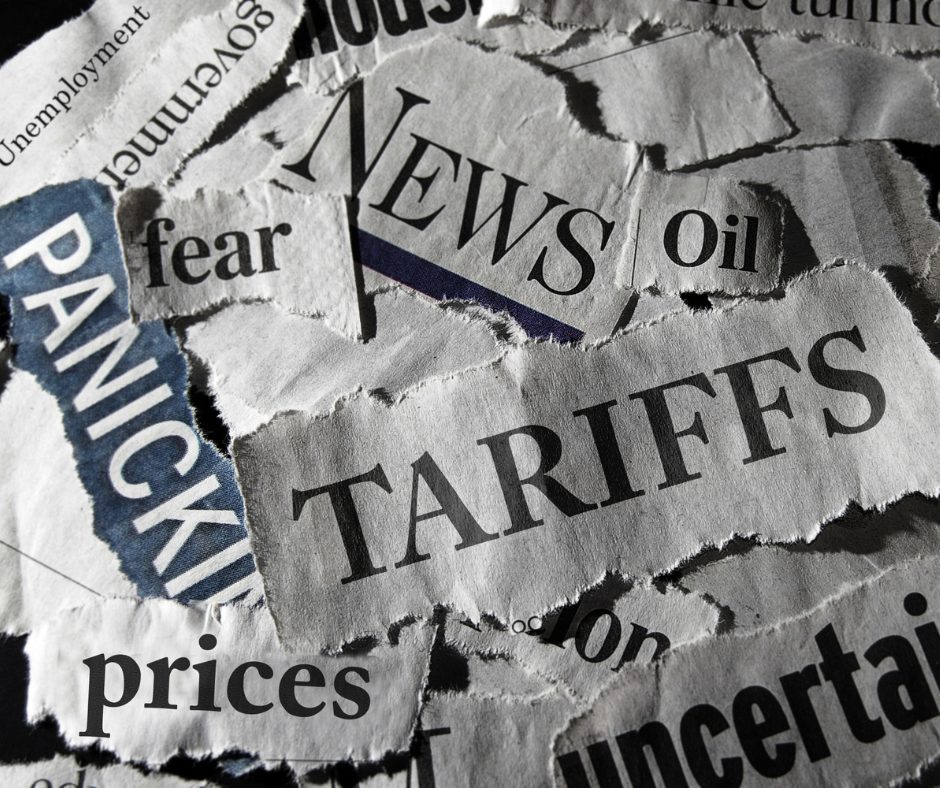When Predictability Disappears, So Does Confidence

Navigating Economic Uncertainty: How Inflation, Stock Market Declines, and Layoffs Are Impacting the Middle Class
Money confidence comes from knowing what’s coming next—steady paychecks, predictable expenses, and a growing economy. But right now? Predictability is out the window. Prices are climbing, layoffs are happening, and the stock market has taken a serious hit since the new administration took over. If you’ve been feeling uneasy about your money, you’re not alone. Even those who were once financially comfortable are now pulling back on spending and swiping their credit cards more than ever just to keep up.
So, what’s really happening, and how is it changing the way we spend? Let’s break it down.
1. The Stock Market Drop Is Messing With Our Heads
Since the new administration took office on January 20, 2025, the S&P 500 has declined by approximately 5.4% (StatMuse). Even if you don’t follow the market, that kind of dip has a ripple effect.
For retirees and investors, watching savings shrink is nerve-wracking. Even for those not heavily invested, the stock market slump eats away at their 401(k), making people feel poorer and shrinking their retirement money, even when their day-to-day finances haven’t changed much.
How People Are Adjusting:
- Prioritizing cash over investments
- Postponing big purchases
2. Inflation Is Eating Away at Our Paychecks
Inflation is like that sneaky little leak under your sink—you don’t notice it at first, but suddenly, everything’s soaked. Prices for gas, groceries, and rent keep going up, but paychecks? Not so much. Even if you’re earning more, it doesn’t mean you’re keeping up.
According to the U.S. Bureau of Labor Statistics, inflation is still a major problem (BLS), forcing families to get creative.
How People Are Adjusting:
- Cutting back on restaurants and discretionary spending
- Keeping cars, phones, and appliances longer
It’s all about stretching every dollar just a little further.
3. Government Layoffs Are Making Job Security Feel Shaky
Nobody likes to hear the word “layoffs,” but job cuts are definitely happening. In March 2025, U.S. employers announced 275,240 job cuts, a 205% increase from the same period in 2024. The majority of these cuts were from federal agencies under the Department of Government Efficiency (DOGE) (Challenger, Gray & Christmas, Inc.).
Job insecurity leads to lower consumer spending. Less spending means a slower economy, which only makes things worse.
How People Are Adjusting:
- Updating resumes just in case
- Reaching out to colleagues for opportunities
4. Credit Card Debt Is Skyrocketing, Savings? Not So Much
With everything getting more expensive, more people are leaning on credit cards to make ends meet. According to the Federal Reserve Bank of New York’s Q4 2024 Household Debt and Credit Report, credit card balances reached $1.129 trillion, up $50 billion from the previous quarter (Federal Reserve NY – Q4 2024 Report).
According to a recent analysis, U.S. households carry an average of $7,321 in Q1 2025, up 5.8% from $6,921 in Q1 2024 (LendingTree), with interest rates averaging 21.91% (WalletHub)
At the same time, savings rates remain stubbornly low, 3.9% in March 2025, down from 4.1% in February (Trading Economics+1Trading Economics+1).
How People Are Adjusting:
- Relying on credit cards and making minimum payments
- Looking for ways to reduce interest rates and pay off debt faster
5. The Shift Toward Playing It Safe
With all this financial uncertainty, people are focusing on what they can control and predict, and being extra cautious. There’s a clear trend of prioritizing financial security over luxury spending.
What We’re Seeing:
- Tracking their expenses, increasing or starting an emergency fund, and cutting out waste
- Building a proactive spending plan to make sure they have the money to pay for high-priority expenses
Many people feel less optimistic about their financial future; honestly, it’s no surprise.
So, What’s the Game Plan?
All this economic uncertainty is stressful, but there are ways to take control:
- Use a budgeting tool; I recommend YNAB (You Need A Budget). This will allow you to determine where your money needs to go before you spend it, putting you in control.
- Give every dollar a job – Decide what they need their money to do before they spend it.
- Build up an emergency fund – Consistently set aside money for emergencies, starting with $500-$1,000 if possible.
- Be intentional with spending – Ask, “Do I really need this right now?”
- Avoid panic-driven financial decisions – Market ups and downs happen. Stay steady. Don’t sell at wholesale and buy back at retail.
Pay off high-interest Credit Card debt – Credit card interest is brutal. Focus on getting rid of it. We can help.
GPS has a strategy for high-interest credit card debt.
The economy will always have its highs and lows, but you can weather the storm by being proactive, tracking your spending, and deciding what you want your money to do before you spend it.
The bottom line? Times are tough. Take action now to adjust to the new normal, or have more debt to pay off. Don’t let uncertainty take control of your finances. You got this!
